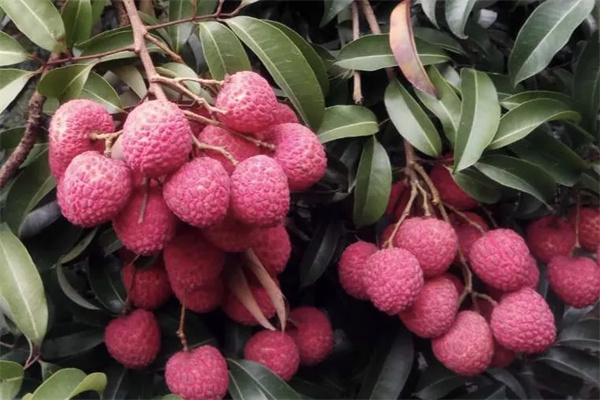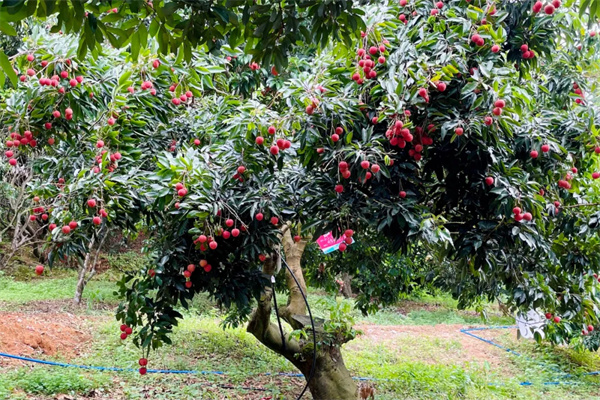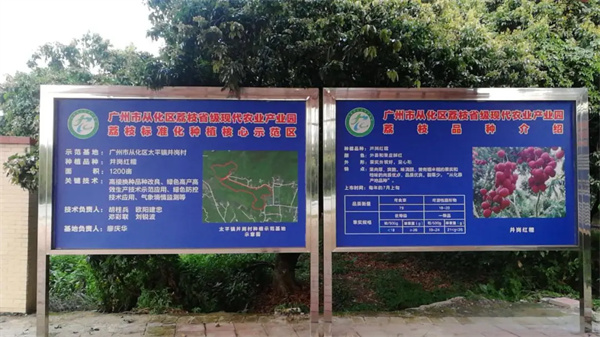Conghua village wins national title of "village with signature products"

Together with its signature lychee product, Jinggang village in Conghua district of Guangzhou, capital of South China's Guangdong province, was included in the 11th group of national demonstration villages with signature products, according to a recent release from the Ministry of Agriculture and Rural Affaires.
Main production base for Jinggang Hongnuo lychee variety
Located at the north of Taiping town along the Liuxi River, Jinggang village enjoys natural advantages in growing agricultural and fruit plants. With a total cultivated area of 9,000 mu (600 hectares), the village has been growing lychee, longan, rice and peanuts as its main business. Jinggang Nongnuo, a lychee variety, has been developed as the village's signature product.

As an original variety from Conghua, Jinggang Hongnuo was planted at scale in Jinggang village in 1995 and was given its current name in 1999.
The total planting area for Jinggang Hongnuo in the village is around 5,000 mu. Almost all the households in the village grow this lychee variety, generating a total output value of 41.5 million yuan ($6.50 million). A number of neighboring villages have also started growing Jinggang Hongnuo, driven by its economic returns.
Sci-tech innovation yields quality and massive sales
To promote agricultural modernization, Jinggang village worked with South China Agricultural University to secure technological support related to production and management technology, pest control and plant growth physiology. The village also joined hands with leading agricultural enterprises so that farmers wouldn't have to worry about sales, given the lychee's short shelf life and high refrigeration cost. The village also signed minimum price package purchase agreements with the farmers to encourage their participation.

Explore sales channels to overseas markets
Since 2015, Jinggang village has been devoted to e-commerce in marketing Jinggang Nongnuo and introducing it to consumers in both the national and international markets.
Eighty percent of Jinggang Hongnuo is sold via company purchases, export, e-commerce platforms, agricultural cooperatives and fruit wholesale markets with its sales network covering eastern and southern China.
